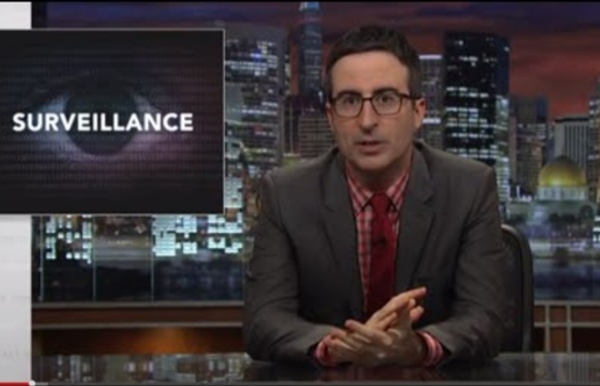



Origins, un merveilleux film d’animation! | L'HumanosphèreL'Humanosphère - Site d'actualités positives Animation – Art : Il y a des gens vraiment doués sur cette planéte et je pense que Monsieur Robert Showalter du Collège Ringling d’art et de design en fait partie! Il nous conte ici la merveilleuse histoire d’un petit robot en quête d’identité! A voir Enjoy origins from Robert Showalter on Vimeo. WordPress: J'aime chargement… Connexe Un puma demande l'hospitalité! Animaux - Insolite : Grosse surprise pour Monsieur Robert Nielsen qui a vu un gros, gros chat gratter sa porte! Dans "Actu Insolite"
Snowden (2016) Un buste d'Eward Snowden érigé illégalement dans un parc de New York Par Francetv info Mis à jour le , publié le Ils ont agi avant que les premiers rayons de soleil n'attirent les promeneurs. Un groupe d'artistes anonymes a érigé, tôt lundi 6 avril, un buste en l'honneur du lanceur d'alerte Edward Snowden dans le parc de Fort Greene de Brooklyn, à New York (Etats-Unis). Le site d'actualités locales ANIMAL (article en anglais), qui a pu rencontrer les initiateurs de ce projet, explique que les artistes ont travaillé pendant un an pour que cet hommage à celui qui a révélé les pratiques d'espionnage généralisé des renseignements américains puisse devenir réalité. "Le monument [sur lequel le buste a été placé] est un hommage aux prisonniers de guerre américains qui ont perdu la vie lors de la guerre d'indépendance", écrivent les artistes dans un communiqué relayé par le site internet. Réfugié en Russie, Edward Snowden est poursuivi pour espionnage dans son pays. Pas de quoi effrayer les artistes à l'origine du projet.
Rien à cacher (argument) Un article de Wikipédia, l'encyclopédie libre. « Rien à cacher » — ou, formulé de façon plus complète, « si vous n’avez rien à cacher, vous n’avez rien à craindre » — est un argument mis en avant pour soutenir que les analyses des données et les programmes de surveillance des gouvernements ne sont pas un problème pour la vie privée, dans la mesure où cette vie privée ne couvre pas d’activités illégales[1]. Le slogan « Si vous n’avez rien à cacher, vous n’avez rien à craindre » a été utilisé dans le programme de vidéosurveillance pratiqué dans les villes du Royaume-Uni[Lesquelles ?]. Cet argument est communément utilisé dans les discussions portant sur la vie privée. Geoffrey Stone, juriste américain, a déclaré que cet argument est « bien trop commun »[2]. Eric Schmidt, à l’époque PDG de Google, a déclaré en 2009[4] : « Je pense qu’il faut faire preuve de jugeote. « De quoi les gens ont-ils peur ? Emilio Mordini, philosophe et psychanalyste, explique que l’argument est paradoxal. Daniel J.
Wismo © wismo.ch, 2008 In Defense of Edward Snowden against John Kerry’s Slanderous Attacks “The notion that a radical is one who hates his country is naïve and usually idiotic. He is, more likely, one who likes his country more than the rest of us, and is thus more disturbed than the rest of us when he sees it debauched. He is not a bad citizen turning to crime; he is a good citizen driven to despair.” —H. L. My good colleague Lawrence has already highlighted the hypocrisy behind Secretary of State John Kerry’s recent comments on NSA whistleblower Edward Snowden. “Treason against the United States, shall consist only in levying war against them, or in adhering to their enemies, giving them aid and comfort. Treason is the only federal crime that’s defined in the Constitution along with the procedural and evidentiary standards spelled out. It’s very clear Snowden has not “levied war” or adhered to an enemy of the United States. “The Fourth Amendment as it was written — no longer exists. “My priority is not about myself.
Assange appeal rejected by Sweden's supreme court | Media Sweden’s highest court has thrown out Julian Assange’s appeal against his arrest warrant, dashing his immediate hopes of an end to his three-year confinement in Ecuador’s embassy in London. His lawyers were, however, encouraged by a 4-1 decision by the judges, which a senior legal figure said indicated the court could still change its mind. The WikiLeaks founder is wanted for questioning in Sweden following allegations of sex crimes that date from August 2010. But without a guarantee he would not be extradited to the US to face espionage charges, he has refused to travel to Sweden and in 2012 sought asylum in the Ecuadorian embassy. Stockholm’s supreme court said in its ruling on Monday: “The public interest in the investigation continues to weigh heavily. In view hereof, and the risk that Julian Assange may evade prosecution if the arrest warrant is lifted, continued detention is currently regarded as compatible with the principle of proportionality.”
What Does Google Know About Me? Did you know that unlike searching on DuckDuckGo, when you search on Google, they keep your search history forever? That means they know every search you’ve ever done on Google. That alone is pretty scary, but it’s just the shallow end of the very deep pool of data that they try to collect on people. What most people don’t realize is that even if you don’t use any Google products directly, they’re still trying to track as much as they can about you. Google trackers have been found on 75% of the top million websites. This means they're also trying to track most everywhere you go on the internet, trying to slurp up your browsing history! Most people also don’t know that Google runs most of the ads you see across the internet and in apps – you know those ones that follow you around everywhere? But even that’s not all… If You Use Google Products If you do use Google products, they try to track even more. And if you use Android (yeah, Google owns that too), then Google is also usually tracking: